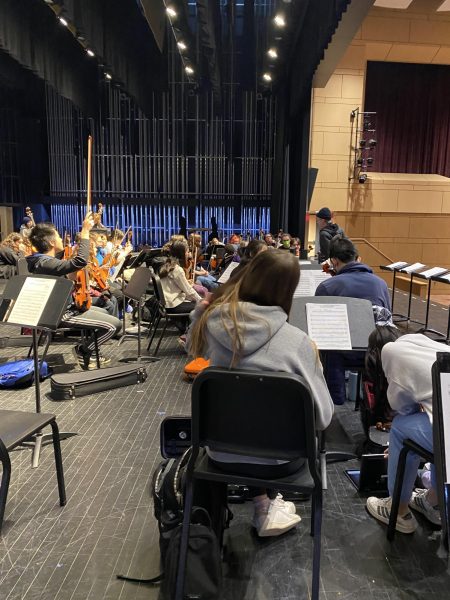Why and How Penn State Upholds Abuse Cycles
Photo of “In The Lions’ Den” by Graham Spanier at Barnes and Nobles.
February 20, 2023
Graham Spanier, the former president of Penn State University, released his memoir “In The Lions’ Den” on September 6. 2022 detailing the events of the Jerry Sandusky case in regard to how he was treated in the media and the criminal justice system.
Choosing to emerge, following years of dodging the press, Spanier reopened the wounds of Sandusky’s victims and other sexual assault victims for his own profit. By promoting his novel, he and the rest of Penn State are choosing to uphold a cycle of abuse within the American college system.
It is wrong to allow a man complicit in the sexual abuse of 10 boys to simply move on and profit off the trauma and abuse that Penn State continues to wheel forward. Graham Spanier’s simplistic book cover should not allow anyone to misdirect or overlook the harm he covered up in the Jerry Sandusky Case.
In 1969, Jerry Sandusky was hired by Penn State as an assistant football coach, under head coach Joe Paterno. From then on, Sandusky was given the opportunity to use his power against youth. About eight years later, in 1977, Sandusky founded “The Second Mile” – a charity designated to help troubled children that gave him a chance to befriend and groom minors.
Over a 15-year-long period, Sandusky was found guilty of 45 out of 48 counts of sexual abuse. Though Sandusky and others complicit were charged, justice has not been served to its totality.
Graham Spanier, the (former) president of Penn State during the Sandusky allegations, was convicted of one misdemeanor charge for child endangerment in his failed action to report or act against Sandusky. However, after serving 58 days in jail, Spanier was released.
Years after the initial trial, Spanier was granted a space in the HUB on the Penn State campus for a book signing and presentation, on Jan. 25, 2023.
This book was not written to reflect on the tragedy the victims of Sandusky have to live with every day. It was purely written to profit off of the trauma of others. Spanier described in his memoir how he felt like he was the victim in the situation, how he felt like he was failed by the criminal justice system, and how he felt like he experienced a miscarriage of justice.
A page from “In The Lions’ Den” by Graham Spanier states, “This book is a story of the criminal justice system run amok, political vindictiveness and retribution, moral panic, and the influence of the twisted media narrative. It is, in short, the anatomy of a smear, a memoir told by a person in the middle of it all. The story involves villains and heroes, fear and bravery, the rehabilitative value of friends and family, and coping with adversity… Ultimately, would justice prevail, and at what cost?”
Another excerpt from the memoir includes, “At that moment I concluded that the toothpaste couldn’t be put back into the tube and that I needed to resign so that the board could manage this evolving crisis as they wished and as was their prerogative. I felt this would be a courageous, magnanimous, and dignified act on my part. “
From those two quotes, we can clearly see Spanier’s view of himself. In the first example, he wrote that this memoir was written about “the criminal justice system run amok” and “told by a person in the middle of it.” From the second expert, it reads that Spanier felt “courageous” and “dignified” for choosing to step down from his position as president. In his own words, Spanier felt like a self-sacrificing hero. But in reality, he was nothing but a man who feeds off of the hurt of others for self-gratification and easing his guilt.
Skimming through the novel, reading the reviews, and reflecting on this myself, I noticed this to be the main theme of the novel. Spanier illustrates that “injustice” was done to these “legendary” men in power. (For context Spanier wrote, “The legendary Joe Paterno, my two administrative colleagues, and I had been unceremoniously sacrificed”). However, that is far from the case. Spanier influenced his reader audience to view himself as a survivor, rather than as someone who was complicit in the abuse .
As president of the Penn State at the time, Spanier had the responsibility to know what was going on on his campus. However, he still gets away with claiming he was unaware of the initial accounts of sexual assault – it is up to debate if this claim is valid or not. Though regardless, this claim speaks to the negligence of Penn State administrators and the lack of control and awareness they have of their own campus.
Sam Wilson is a senior in the Delta Program. “I think if he were definitely found to be complicit in the abuse that happened,it would be wrong for him to promote his book. Even though it details the events that happened when he was still an associate. It would be wrong to profit off of that because it’s wrong. And profiting off of people’s suffering is immoral,” Wilson said.
According to Wilson, who also a Barnes and Nobles Worker, 161 copies of “In The Lions’ Den” were sold in the last year. That’s $25 a book and $4025 overall in only one location. (It is important to note that the Sandusky Case was a national issue with people invested from all over the country.) Where does this profit go to? Better yet, what does Graham Spanier do with this money?
Spanier was released from prison after only serving 2 months. Following his short sentence, Spanier was able to hide away from the public’s eye and re-emerged with unconditional support. It’s easy for people in positions like that of Graham Spanier to hide in the shadows and be able to get a profit off of the tragic situation. The reality of harm and hurt in this situation is the victims’ situation
Penn State dismissed a large base of their administration in regards to the Sandusky case, but 30 years later, allows prominent figures of the case to walk on campus. And, in Spanier’s case, hold a platform for his book profiting off of people’s traumas. Penn State has not, and continues to not care about their community and their own students, and alumni.
Wilson recalled, “I think Penn State has definitely had a few events that are not an alignment with what Penn State has said they believe. So I think having somebody like Graham on campus, talking about his book, is backward thinking. I mean definitely spread awareness about it but he’s making a ton of money. Like we’ve sold so many copies here.”
In recent events, Penn State invited the fascist organization The Proud Boys founder Gavin McInnes and Alex Stein to campus for their own “comedy event”. In addition to that just weeks after the Proud Boys event, Penn State administration cancels its plans for the Center For Racial Justice.
Wilson holds concern as a SCASD community member. “I think because we’re all here in State College. State High definitely tries to follow whatever Penn State does. It’s a bad example. Penn State is the bigger company here. So we model after them. So if Penn State closes on a snow day, we close too. That’s kinda how it works. So if they aren’t seeing action being taken against people who are doing bad things, then they will have a similar mood about it,” they said.
Elijah McNeil, a student at State High, reflected alongside Wilson. “PSU is weird for allowing somebody like that in their community. State High students often go to PSU so that’s a bad community to go right into as children and teens. Personally, I would expect it to be dealt with in a responsible way,” he said.
In regards to State High’s administration, Wilson later commented, “I think that the State High administration has its good and bad things about it. Counseling seems like a pretty good place to go to, like Peer Counseling and Peer Advocates– which is a great resource that people should use. But the administration itself dealing out punishments has not been very good in the last couple of years.”
State High students care about the events occurring at Penn State because those decisions also dictate the future of their own education. Both campuses offer and promise their students a high quality education. One way to achieve that is by exercising our critical thinking into holding institutions like Penn State, and even State High, accountable.
It is not right to continue to sacrifice the safety and general welfare and well-being of students. It is not right to allow for the exploitation of students and the perpetuation of abuse on our campuses.













Sam W • Feb 24, 2023 at 8:57 AM
This is great, Sarah. Excellent work.